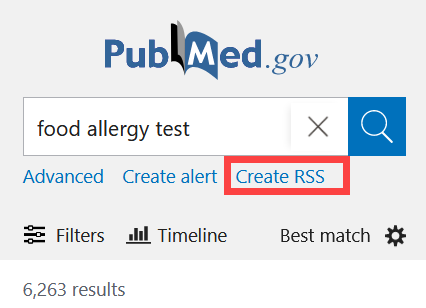Discover Preprints with the Newly Updated search.bioPreprint
Now in its third iteration, search.bioPreprint is a search tool developed by HSLS that provides a simple way to identify cutting edge, yet-to-be published biomedical research published in a preprint format. Preprints play a role in catalyzing scientific discovery, facilitating career advancement, and improving the culture of communication within the life sciences community (ASAPbio). They are preliminary reports of work not yet certified by peer review. They are preliminary reports of work not yet certified by peer review. Preprints are not intended to guide clinical practice or health-related behavior and should not be reported in news media as established information.
Preprints were formerly only discoverable by directly searching specific preprint server websites, as they are not typically indexed. Preprint servers are open access online distribution centers/archives that enable authors “to make their findings immediately available to the scientific community and receive feedback on draft manuscripts before they are submitted to journals” (About bioRxiv). Preprints are not copy-edited or peer-reviewed prior to posting online, although they undergo a basic screening process to check against plagiarism, offensiveness, and non-scientific content. Authors may make revisions at any point prior to publication, but all versions remain available online. Continue reading
Share with Flair with FAIR-Aware
Whether you’re new to the conversation about open science or a longtime supporter of sharing and reusing research data, the FAIR guidelines for making data findable, accessible, interoperable, and reusable establish a basic set of principles for all practitioners who wish to make their research more reproducible. The “how” of doing so varies greatly among fields, modes of research, and investigators’ goals, however, so figuring out the first actions to take to make your research products more FAIR can pose a challenge. A new online tool from the FAIRsFAIR project aims to help researchers think through each FAIR principle and demystify related jargon with FAIR-Aware, a self-guided questionnaire with extensive explanatory guidance for the concrete steps involved in making data FAIR. Continue reading
NIH Preprint Pilot
Recently you might have noticed a different article type showing up in the results of your PubMed searches—preprints. A preprint:
“…is a scholarly manuscript posted by the author(s) in an openly accessible platform, usually before or in parallel with the peer review process.” (Committee on Publication Ethics)
In June 2020 the National Library of Medicine (NLM) launched a pilot project to test the viability of making preprints resulting from NIH-funded research available via PubMed Central (PMC). Following standard NLM practice, a citation for each preprint record in PMC is also made available in PubMed to further increase the discoverability of this content. Continue reading
Create RSS Feeds in PubMed

The ability to create an RSS (Really Simple Syndication) feed is available in the new PubMed. The “Create RSS” link is available after running a search (see Figure 1).
HSLS Staff News
The HSLS Staff News section includes recent HSLS presentations, publications, staff changes, staff promotions, degrees earned, etc.
Names in bold are HSLS-affiliated
News
Helenmary Sheridan, Data Services Librarian, has been promoted to Librarian II, which expands her role as Data Services Librarian to provide support in the health sciences on open science and enhancing research reproducibility.
Publications
A. Alipour, S. Gabrielson, Research and Instruction Librarian, and P.B. Patel, published, “Ingestible Sensors and Medication Adherence: Focus on Use in Serious Mental Illness,” in Pharmacy (Basel), June 16, 2020; 8(2):E103.
K. Gau, P. Dillon, T. Donaldson, S. Wahl, and C. Iwema, Coordinator of Basic Science Services, published, “Partnering with Postdocs: A Library Model for Supporting Postdoctoral Researchers and Educating the Academic Research Community,” in the Journal of the Medical Library Association, 2020, 108(3):480–486. Continue reading
Classes for August 2020
Due to recent University of Pittsburgh restrictions, HSLS will be offering all classes online until further notice.
Painless PubMed, Monday, August 3, 10–11 a.m.
Advanced PubMed, Tuesday, August 4, 8:30–10 a.m.
Crafting a Data Management Plan, Thursday, August 6, 12–1 p.m.
Genetic Variation, Wednesday, August 12, 10 a.m.–3:30 p.m.
Learn Your Library: A Virtual Introduction to HSLS, Tuesday, August 25, 11 a.m.–12 p.m.
